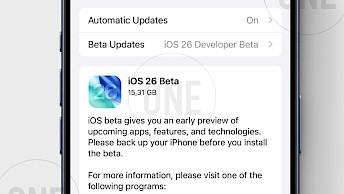4 Tech Whistleblowers Who Shocked the World With Their Revelations

Technology has reshaped how we live, work, and connect. Yet, beneath its glossy surface lie complex ethical challenges that often go unnoticed. Whistleblowers uncover such hidden truths as secrecy cloaks questionable practices.
These secrets can be about unsafe products, unfair practices, or illegal activities. But talking comes with a price. Whistleblowers risk their careers and reputations to bring these issues to light.
Over the years, several individuals have stepped forward to expose ethical lapses, security risks, and privacy violations within major tech companies. Their revelations have sparked global conversations and led to calls for accountability.
In this blog post, we'll learn about four tech whistleblowers who made headlines with their shocking revelations. They dared to challenge powerful tech giants and expose practices that affected millions of people.
1. Francis Haugen
Francis Haugen, a former Facebook product manager, made headlines in 2021 when she disclosed internal documents revealing significant issues with the platform's algorithms. According to Vox, her revelations show that Facebook’s (now Meta) algorithms prioritized user engagement above all else, often amplifying harmful content.
This design strategy contributed to societal damage, of which Meta was aware. CBS News states that one of her most impactful claims focused on the suicidal tendency caused by Instagram, especially by teenagers. Haugen highlighted internal research indicating that Instagram exacerbated body image issues among young girls. She also questioned the effectiveness of tools and privacy features targeted toward kids.
Haugen's revelations sparked public outrage and led to investigations. Lawmakers questioned Facebook executives about their practices. The company faced increased scrutiny for its role in spreading harmful content and its impact on mental health. A similar situation has led to the ongoing Instagram lawsuit. In this lawsuit, parents claimed that Instagram caused their children to develop mental health problems.
According to TorHoerman Law, plaintiffs argue that the platform's design was addictive and harmful to young people, leading to many facing mental health disorders. Parents are blaming Meta for causing depression, anxiety, ADHD, eating disorders, body dysmorphia, and other mental illnesses in children.
Haugen’s testimony before Congress emphasized the need for stricter regulations on tech companies to prioritize user safety. Her actions have significantly influenced discussions on holding platforms accountable for their algorithms and user policies.
2. Timnit Gebru
Timnit Gebru, a prominent artificial intelligence (AI) researcher, brought attention to the ethical concerns within AI development during her time at Google. As co-lead of the company’s Ethical AI team, Gebru examined how large language models could perpetuate racial biases from their training data.
The Guardian reveals that Gebru’s research argued that these systems might unintentionally reinforce racial and gender inequalities. Gebru’s dismissal from Google in 2020 followed her critique of the company’s reluctance to address these issues transparently. Her departure underscored a broader problem in the tech industry: the lack of diversity and inclusivity in decision-making processes.
Gebru’s revelations spurred important conversations about ethical AI, highlighting the need for organizations to integrate accountability into their AI development practices. Her work continues to influence discussions on reducing bias in technology and creating systems that serve all communities equitably.
3. Peiter Zatko (Mudge)
Peiter Zatko, aka “Mudge,” is a cybersecurity expert-turned-whistleblower after his tenure as Twitter’s security chief. CNN reveals Zatko alleged that Twitter (now X) deceived regulators and users about the robustness of its security practices. He claimed the platform lacked basic safeguards to protect user data and had inadequate defenses against insider threats.
Zatko’s disclosures painted a troubling picture of Twitter’s internal operations. He accused the company of prioritizing growth over addressing fundamental security vulnerabilities. His revelations included claims that foreign agents had infiltrated Twitter’s workforce, potentially compromising sensitive user data.
These allegations raised serious concerns about the safety of user information on social media platforms. Zatko’s whistleblowing has reignited debates about tech companies’ responsibilities in safeguarding their users and ensuring transparency in their operations.
4. Edward Snowden
Edward Snowden, a former National Security Agency (NSA) contractor, is perhaps the most well-known whistleblower in recent history. In 2013, he exposed the extent of global surveillance programs conducted by the NSA and its partners. According to History.com, Snowden has leaked over 7,000 confidential documents so far. However, investigators reveal he accessed over 1.5 million files, and only a fraction has been released.
His disclosures revealed that the agency collected vast amounts of phone calls, emails, and internet usage metadata without public knowledge or proper oversight. Snowden’s leaks detailed how governments tapped Big Tech servers to conduct these surveillance activities. His revelations showed how tools like PRISM, a data-collection program, allowed the NSA to access user information directly from major internet companies.
Moreover, the state also kept tabs on other countries’ top officials, like Germany’s Angela Merkel. The public reaction to Snowden’s disclosures was profound. His actions fueled debates about the balance between national security and individual privacy.
Although some reforms, like the USA Freedom Act, were introduced following his revelations, Snowden remains in exile. A decade later, his disclosures continue shaping global conversations about digital privacy and surveillance.
FAQ
Whistleblowers often face retaliation, but laws like the Whistleblower Protection Act and the False Claims Act offer some protection. These laws can shield them from employer retaliation and even provide financial rewards for reporting government fraud. However, the level of protection varies by case and jurisdiction.
Most tech companies initially deny claims, conduct internal investigations, and attempt to discredit whistleblowers. They also employ legal teams to minimize public damage, issue carefully worded statements, and control the narrative through media management and strategic communications.
Yes. Whistleblowing can drive change by forcing public scrutiny, triggering regulatory investigations, and compelling companies to modify policies. While immediate transformations are rare, these revelations create long-term pressure for increased transparency, ethical practices, and user protection in technological ecosystems.These four individuals represent more than personal stories of courage. They risked their careers to expose wrongdoing within powerful tech companies and the government. Their actions sparked important conversations about ethics, privacy, and accountability in the digital age.These whistleblowers showed us that even large organizations can be held accountable. They remind us that individuals can make a difference. Their actions inspire others to speak against injustice and demand transparency. As technology evolves, whistleblowers will prove crucial in ensuring responsible and ethical development.





